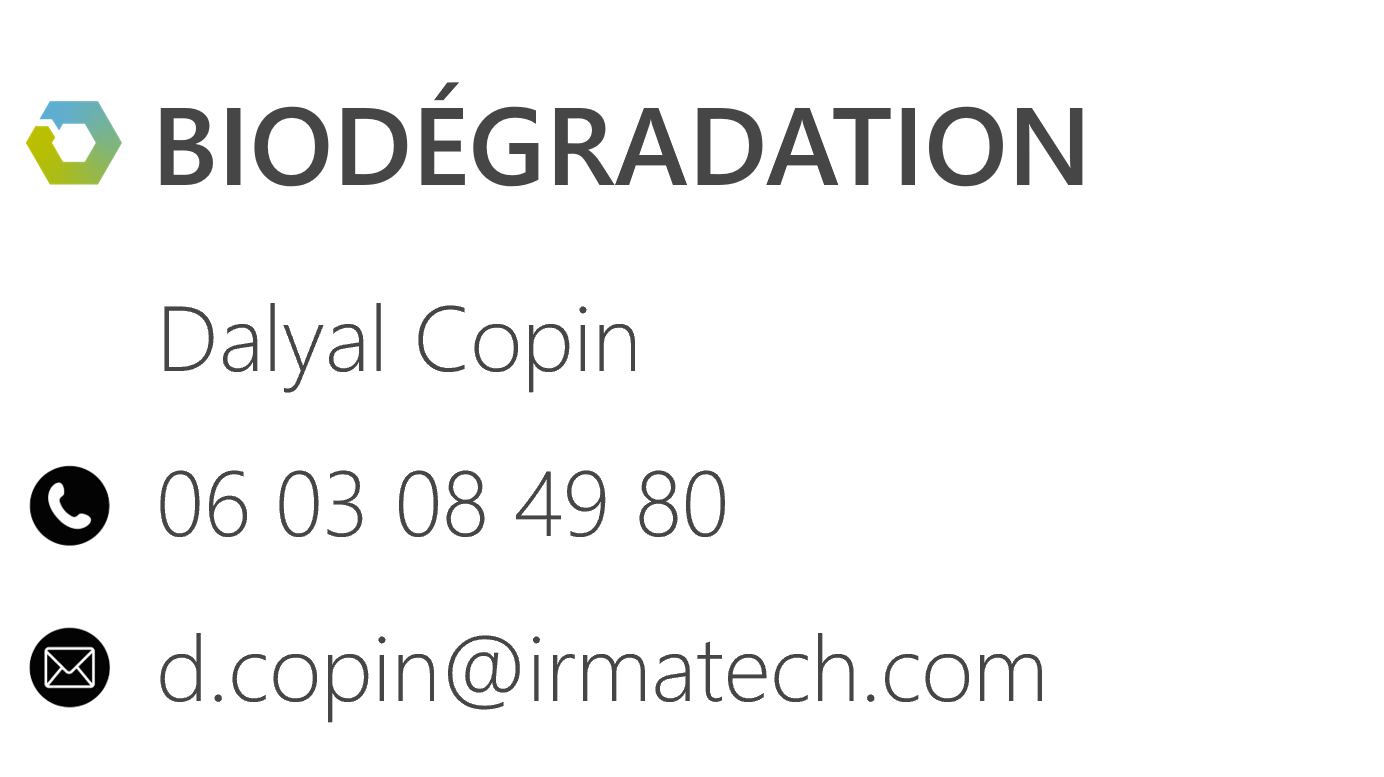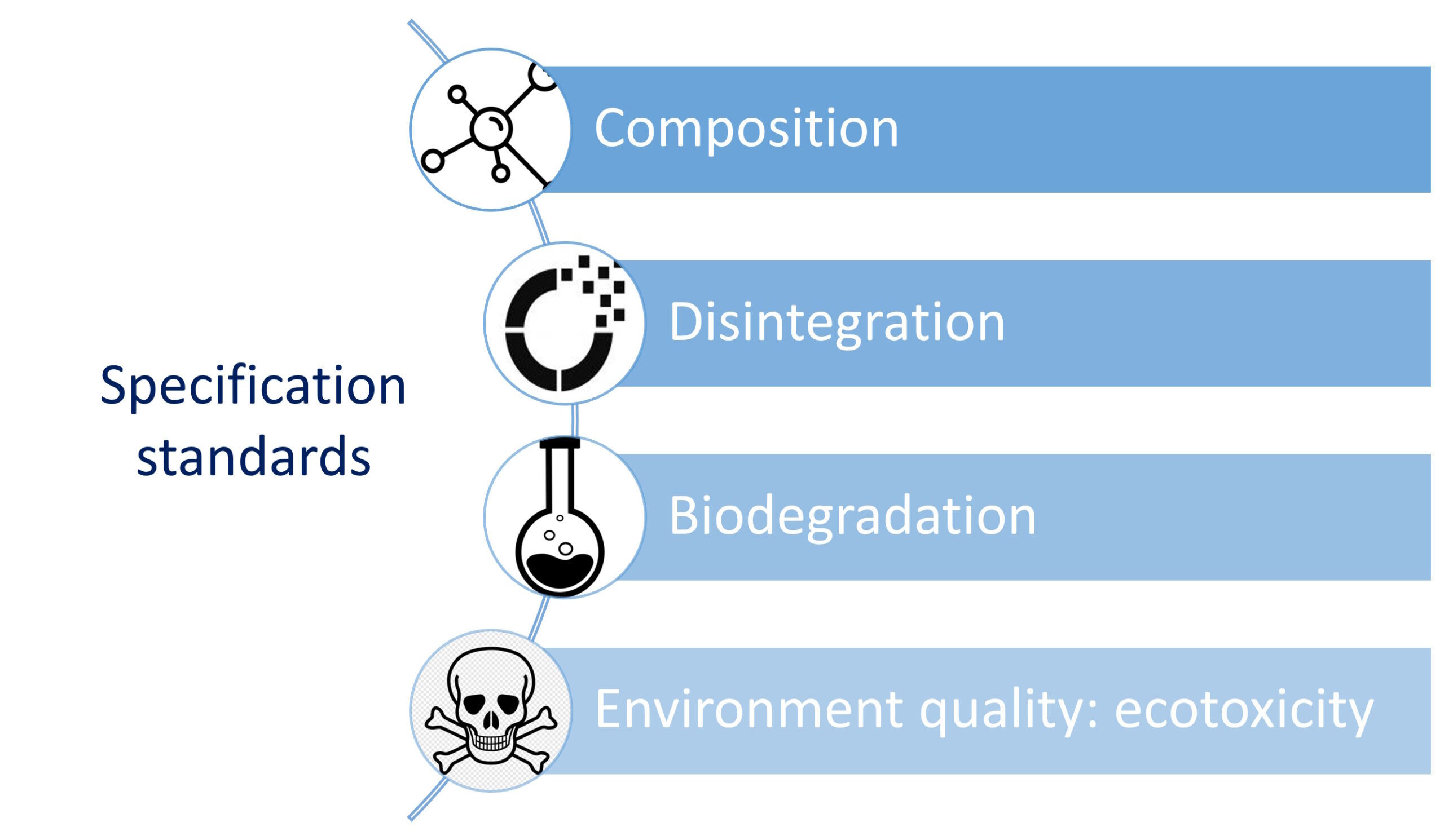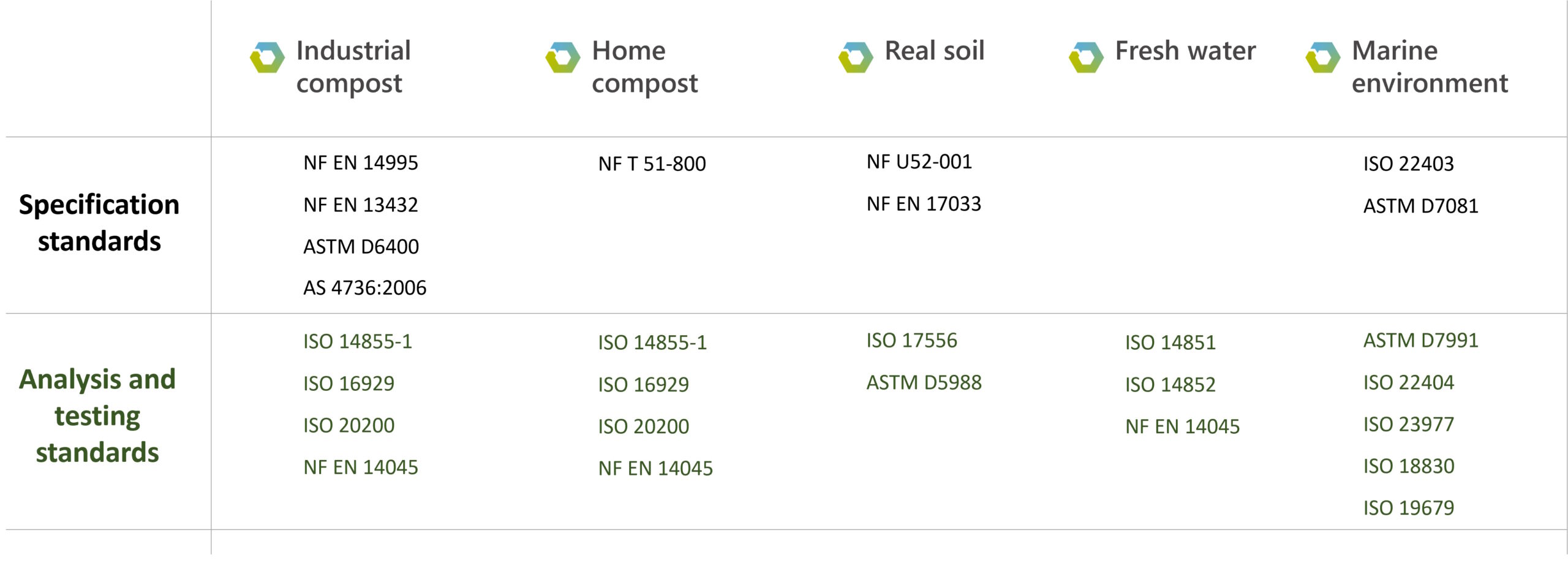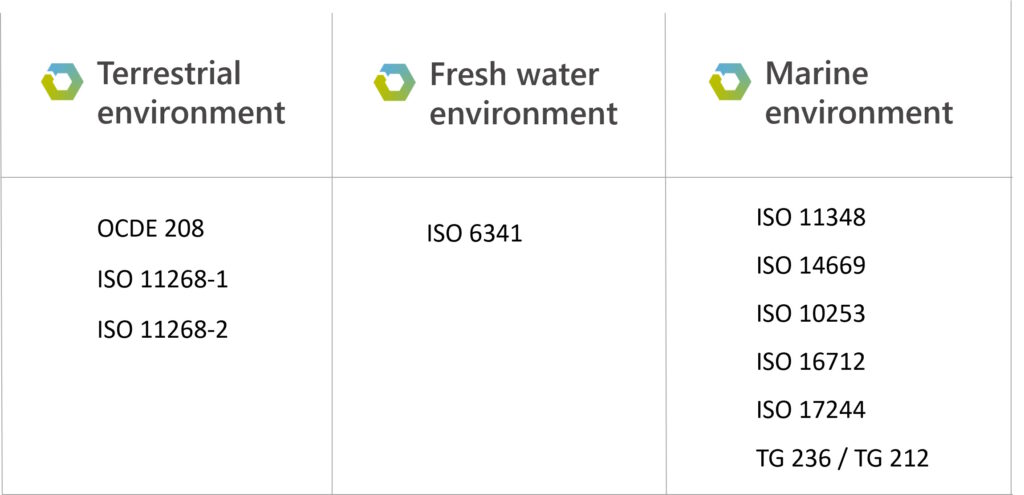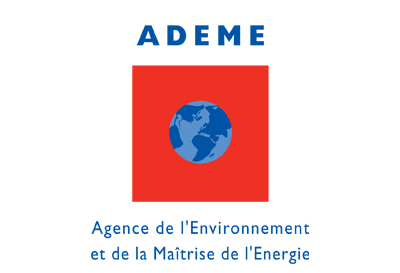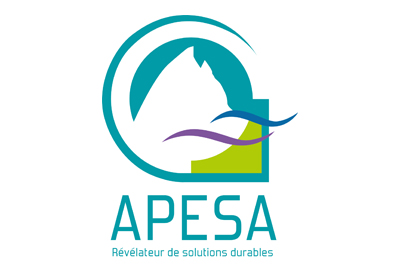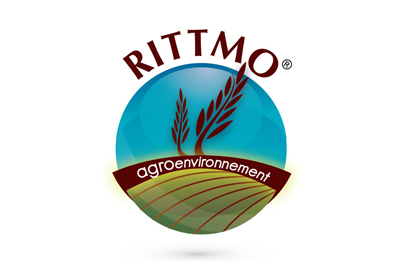PolyBioAid by IRMA

In a general context of optimising the management of resources and waste, particularly plastic materials, the development and use of biodegradable materials represents a positive step towards creating a more sustainable and environmentally-friendly future.
In line with European recommendations and regulations, the use of such materials in specific sectors such as packaging, paper, agriculture, textiles and cosmetics requires verification of a product’s ability to biodegrade. A number of criteria can be assessed, including material degradation or disintegration, intrinsic biodegradability, absence of toxicity and the presence of regulated substances….
From SERPBio to PolyBioAid by IRMA
Founded in 2005, the SERPBio association (Biodegradable Polymers Services Studies and Research) brings together academic and industrial players in the field of biodegradable materials. SERPBio is designed to help SMEs and SMIs obtain “compostable” certification for the materials they put on the market, and also to develop knowledge about these materials by funding research projects and theses.
Under the chairmanship of Guy CESAR since its creation, SERPBio gave birth in 2016 to a new entity, PolyBioAid, which then works with IRMA and offers scientific, technical and regulatory support to players in the biodegradable materials sector.
In October 2022, IRMA integrated PolyBioAid’s activities into its Low-Impact Materials division, forming PolyBioAid by IRMA, whose missions remain the same as those of PolyBioAid.
A word from Guy César – Founder of PolyBioAid

I graduated as an engineer and have spent my entire career in agronomic research, first in Switzerland and then in Brittany. As early as 1998, I became interested in biodegradable plastics for use in agriculture, before rapidly extending my interest to all other plastics, particularly packaging. I set up a laboratory to study the biodegradability of polymers and developed inexpensive methods for analysing biodegradability in soil, compost, freshwater and seawater.
In 2004, just before I retired, I set up and chaired the SerpBio association, whose first board was made up of Professors Y. Grohens (Lorient), P.J.Madec (Caen) and L. Benguigui (Le Mans). The aims of the association are to defend and develop the use of biodegradable materials and, in particular, to enable SMEs and medium-sized companies to gain access to certification. In 2016, we had to register for VAT and PolyBioAid was created. I also acted as Chairman until the end of 2022, when PolyBioAid merged with IRMA to become PolyBioAid by IRMA.
I remain an active member of IRMA and continue to chair SerpBio, which has become an advisory and consultative body. PolyBioAid by IRMA now has modern biodegradability analysis equipment and is continuing to develop. It will shortly be awarded the NF EN ISO 17025 standard.
Introduction to PolyBioAid By IRMA
Biodegradation aspect
The PolyBioAid by IRMA service meets all your analytical requirements in the field of biodegradable materials. It offers support to SMIs and SMEs to facilitate access to compostable and biodegradable certification based on the specification standards in force:
– NF EN 13432 / EN 14995 / NF U 52001 / NF T 51-800.
Unlike analysis and test standards, which indicate the procedure for measuring a parameter (intrinsic biodegradation, toxicity, etc.), specification standards lay down the thresholds required to qualify as compostable and/or biodegradable.
Ecotoxicity aspect
Research into compliance with compostability standards includes an ecotoxicological component aimed at demonstrating the chemical and biological quality of an environment after exposure to the tested material. PolyBioAid by IRMA thus offers toxicological evaluation associated with the biodegradability theme, but also as part of various studies (biocidal coatings and fouling release, soluble molecules, leachates, etc.).
Toxicological studies can be of a chronic nature, enabling effects to be observed over a longer period (weeks to months), or of an acute nature, limited to observations of the response of organisms over a few days. Tests are carried out on different trophic levels (bacteria, microalgae, crustaceans, bivalves, fish, etc.) to provide an overview of the impacts depending on the compartments targeted (water column, sediments, etc.).
Your contact person

